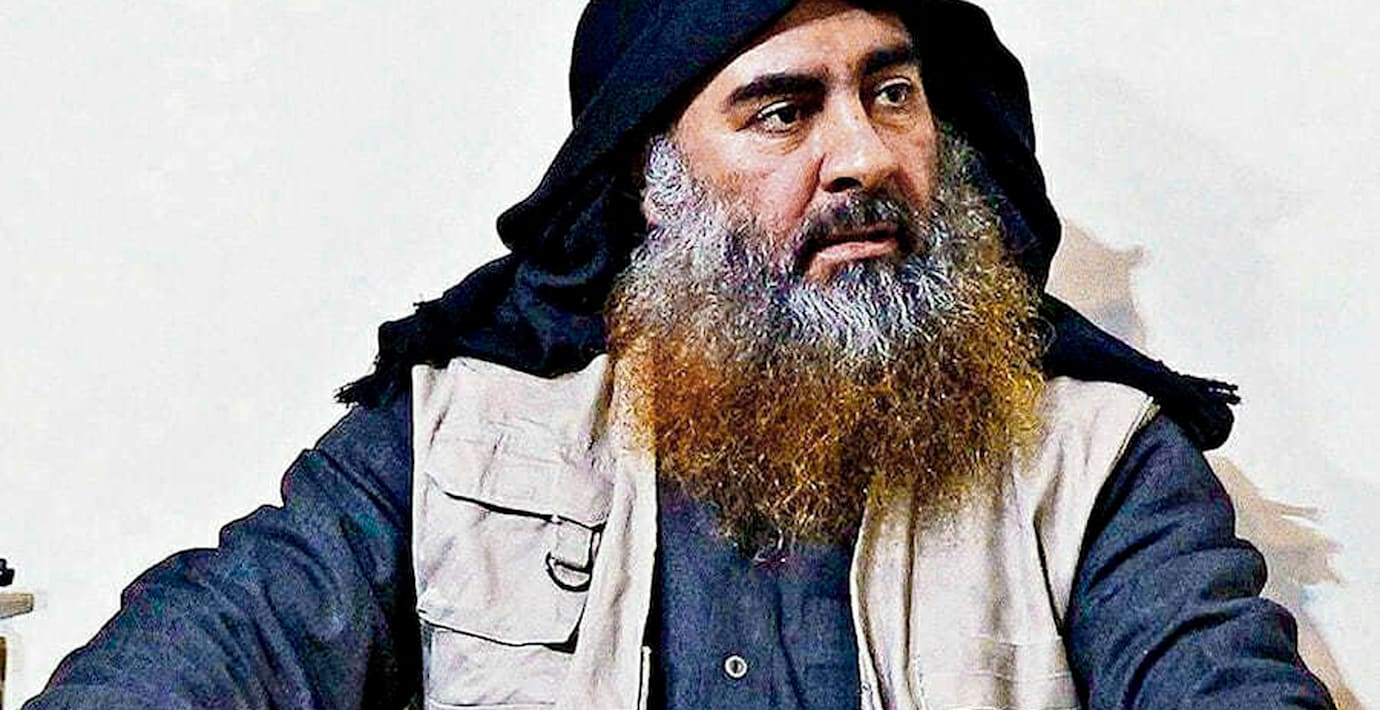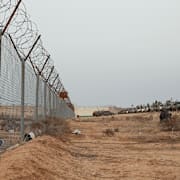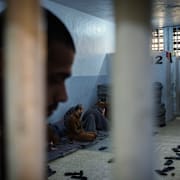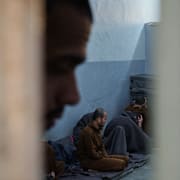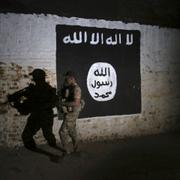bakgrund
Abu Bakr al-Baghdadi
Wikipedia (en)
Ibrahim Awad Ibrahim Ali al-Badri (Arabic: إبراهيم عواد إبراهيم علي البدري, romanized: ʾIbrāhīm ʿAwād ʾIbrāhīm Alī al-Badri; 28 July 1971 – 27 October 2019), commonly known by his nom de guerre Abu Bakr al-Baghdadi (Arabic: أبو بكر البغدادي, romanized: ʾAbū Bakr al-Baghdādī), was an Iraqi militant who was the first caliph of the Islamic State (IS) from 2014 until his death in 2019.
Baghdadi was born in Samarra and obtained graduate degrees in Islamic theology in the late 1990s and 2000s. According to supporters, he obtained a PhD at the Islamic University of Baghdad. Following the American invasion of Iraq in March 2003, Baghdadi led the "Jama'at Jaysh Ahl al-Sunna wal-Jama'ah" insurgent group in Iraq and was detained with al-Qaeda commanders at the American Camp Bucca in 2004. His group joined the Mujahideen Shura Council (MSC) coalition in 2006 and fought alongside Al-Qaeda in Iraq. Upon the dissolution of the MSC in October 2006, Baghdadi became a leading member of the newly established Islamic State of Iraq organization, and rose through the group's ranks until he was appointed its emir, the highest leader, in 2010. In March 2013, the group renamed itself as the "Islamic State of Iraq and Levant" (ISIL), announcing its intention to expand into Syria and forcibly assimilate the Al-Nusra Front, leading to a conflict with Al-Qaeda's general command. In June 2014, the group once again re-designated itself as the "Islamic State", and declared itself to be a caliphate. Baghdadi was chosen caliph of the Islamic State by the Shura Council, who represented those members of the Islamic State qualified to elect a caliph.
Baghdadi's claim to be "caliph" was almost universally rejected by the Muslim community. IS was designated as a terrorist organisation by the United Nations and almost all sovereign states, and Baghdadi was individually considered a terrorist by the United States and many other countries. As leader of IS, Baghdadi led the Islamic State's wars against Iraq and Syria. Baghdadi directed the use of controversial tactics, including the mass use of suicide bombings and the execution of prisoners of war. IS briefly captured substantial territory in Iraq and Syria, but lost all of that territory and almost all of its fighters during Baghdadi's tenure as caliph. Baghdadi would become directly involved in IS's atrocities and human rights violations. These include the genocide of Yazidis in Iraq, extensive sexual slavery, organized rape, floggings, and systematic executions. He directed terrorist activities and massacres. He embraced brutality as part of the organization's propaganda efforts, producing videos displaying sexual slavery and executions via hacking, stoning and burning. Baghdadi was a serial rapist who kept several personal sex slaves.
On 27 October 2019, Baghdadi killed himself and two children by detonating a suicide vest during the Barisha raid, conducted by the United States following approval from President Donald Trump, in Syria's northwestern Idlib Province. After being offered Islamic funeral rites, his body was buried at sea. IS confirmed his death and named Abu Ibrahim al-Hashimi al-Qurashi as his replacement.
